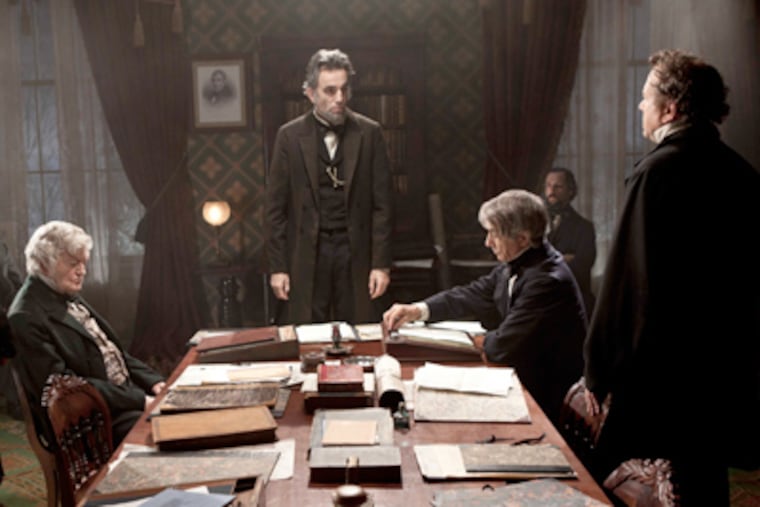Steven Spielberg's 'Lincoln' brings humanity to Honest Abe
NINE IN 10 Americans hate Congress on the grounds that its inhabitants are bullheaded, incompetent, etc. Now comes Steven Spielberg's "Lincoln" to level, by implication, another charge: Today's politicians may be insufficiently corrupt.

NINE IN 10 Americans hate Congress on the grounds that its inhabitants are bullheaded, incompetent, etc.
Now comes Steven Spielberg's "Lincoln" to level, by implication, another charge: Today's politicians may be insufficiently corrupt.
Yes, insufficiently corrupt. Because you wouldn't have truly petrified gridlock if more representatives could be bribed.
And if you can "induce" a dozen or so racist congressmen to sign the monumental and slavery-ending 13th Amendment, as "Honest" Abe Lincoln (Daniel Day-Lewis) did at the end of the Civil War, why can't we get a budget deal today?
The question lingers after "Lincoln," a mostly solemn exercise in respectful top-hatted Lincolnism, with some welcome exceptions. At its best, the movie is an effective political potboiler about the backdoor push for the 13th Amendment, with comic relief in the form of off-the-books operatives (James Spader, John Hawkes) dispatched on the sly to trade patronage jobs for votes.
These subplots are important beyond their comic relief purposes. They position Lincoln as a crafty pragmatist among passionate zealots on both sides of the slavery issue.
Tommy Lee Jones is radical Pennsylvania abolitionist Thaddeus Stevens; Lee Pace is Fernando Wood, the Democrat who does not want the wartime Emancipation Proclamation encoded in the Constitution.
There's not much room in the middle for compromise (some things never change), but Lincoln achieves it, and Spielberg (with a script by Tony Kushner) zeroes in on the president's genius for managing ideas and people.
Visits to the Lincoln home are less engaging. Sally Field has the thankless job of conveying Mrs. Lincoln's crushing grief and probable mental illness.
And Joseph Gordon-Levitt can't do much with the role of Lincoln's eldest son, a student itching to enlist in the Union army.
Spielberg invests much in the ability of Day-Lewis to make this icon human, and his performance is a great success. Day-Lewis (ingeniously made up) is physically looming and stooped, like a raven presaging his own demise, but with lively eyes that register his humor, wit and passion.
Blog: philly.com/KeepItReel